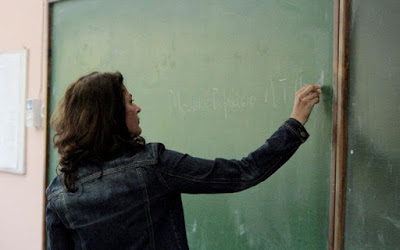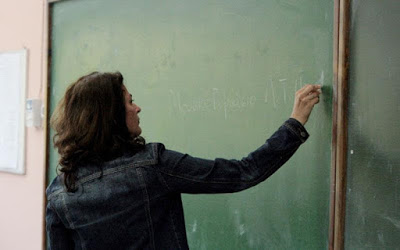This emerges from the catapult decision of the Supreme Court, which rejected an appeal of the EVS and acquitted a teacher who appealed to the Court for the second time, when her colleagues were at the headquarters before her. According to educational circles, the decision of the Court of Appeals is a bomb in the foundations of the list of appointees and if there is no immediate legislative regulation of the issue through an amendment of the existing law, then there is a risk of overturning the list of thousands of candidates, as well as validity. multiple appointments.
The professor's appeal
A computer science teacher who worked part-time in public schools from September 2002 to December 2007, but without a full-time job, went to court. It appears that she was awarded points related to previous service, which referred to previous school years and specifically two units (half and each of the school years 2002-2006) with the result that in the list of appointees published at the beginning of 2007 she was higher in overall score from the two interested parties whose appointment was challenged by the appeal. However, in the list of appointees published at the beginning of 2008, which would also show her previous service for 2006-07, she was not credited half a point, as a result of which she lagged behind the interested parties in the overall score. So, in her appeal, in addition to the appointment of her two colleagues and her inclusion in the wrong order of priority, she challenged the 2008 table.
The first instance decision of 2010
In May 2010, the Supreme Court acquitted the professor, after examining whether the method of calculating the pre-service units applied by the EVS is correct based on the law and the regulations. The judge of the case, D. Hatzihambis, ruled that the EVS method is not correct "since clearly the law and the regulations do not refer to calendar years of service, ie based on the total of the individual periods of service, but to a school year which is explicitly defined as starting on 1 September and ending on 31 August ".
In the decision, it refers to the law of the public educational service where it is mentioned, among other things, that for the educational service half a unit is given for each school year, so that the order of priority in the list is determined based on this criterion as well. He adds that the operating regulations of the public secondary schools are also important, which stipulate that "the school year begins on September 1 of each year and ends on August 31 of the following year".
During the examination of the case, however, it was found that the EVS takes a different approach. In the applicant 's case,' she acted not on the basis of the concept of the school year and its duration, but on the basis of the total period of time that the applicant served as part-time, dividing all her periods of service by twelve months to find how many years, months and days, chronologically speaking now, had served as an emergency and giving her half a point for each full calendar year. "
The decision of the Court of Appeal in 2015
The decision of the Court of First Instance was appealed by the EVS, arguing the correctness of the method it followed. However, he lost the case, as the partial plenary session of the Supreme Court (five judges) concluded: "The explicit request of the legislator to provide half a unit for each school year did not leave any room for the EVS to derogate. The Court of First Instance rightly held that the EVS's approach to calculating the defendant's length of service was incorrect under the law and regulations. It does not matter that each completed school year lasts, like the calendar year, 365 days or if in this case the application of the correct methodology would result in the return to the defendant of the same units or less because her service up to the essential time was not continuous and did not work for whole school years… The correctness of the methodology applied by the EVS is not judged by its result, but by reference to the relevant provisions of the law. In this case, the choice of the EVS to accurately calculate the defendant's length of service depending on the 365 days of the calendar year instead of the school year, as required, constitutes a misinterpretation and misapplication of Article 28B (3) (c).
An amendment is being promoted in Parliament
As soon as the educational organizations were informed about the decision of the Court of Appeal, it sounded the alarm. However, they preferred to keep their tones low, in an effort not to upset.
Yesterday, the leaders of the three organizations, POED, OELMEK and OLTEK, held a joint meeting on the issue, while according to information, teachers' officials have already contacted MPs, stressing the need to immediately promote an amendment to the law.
According to the same sources, the whole issue is expected to be discussed in the parliamentary Committee on Education, next Tuesday, November 10. At the same time, a proposal is being prepared to address the problem. The amendment provides, inter alia, that Article 28B of the Basic Law, which concerns the criteria for determining the order of priority of candidate teachers in the list, be amended as follows: Paragraph (c) of subsection (3) which provides:
- "educational background: half a unit for each school year" is replaced by the following new paragraph:
- "educational service: half a unit for every twelve months of total service".
The aim is to pass a law as soon as possible and to have retroactive effect.
Source: Liberal

